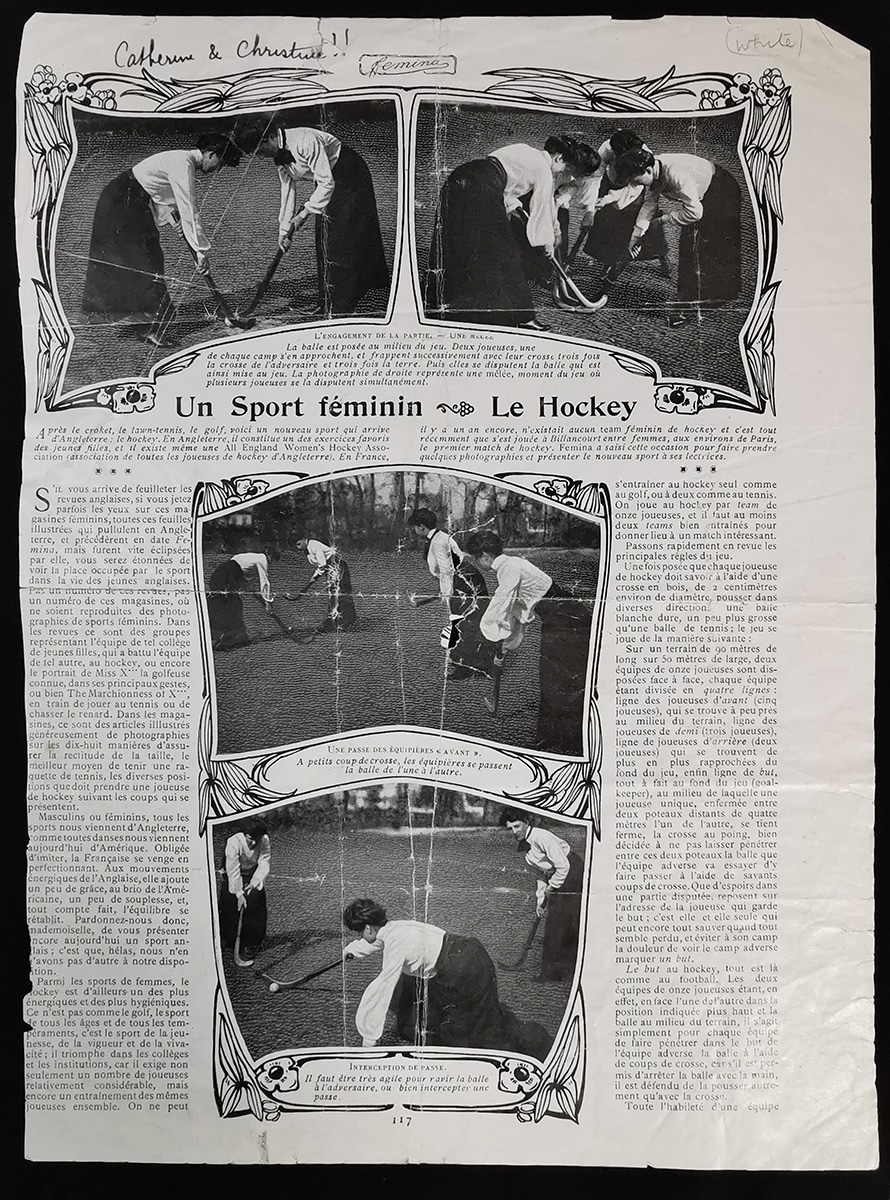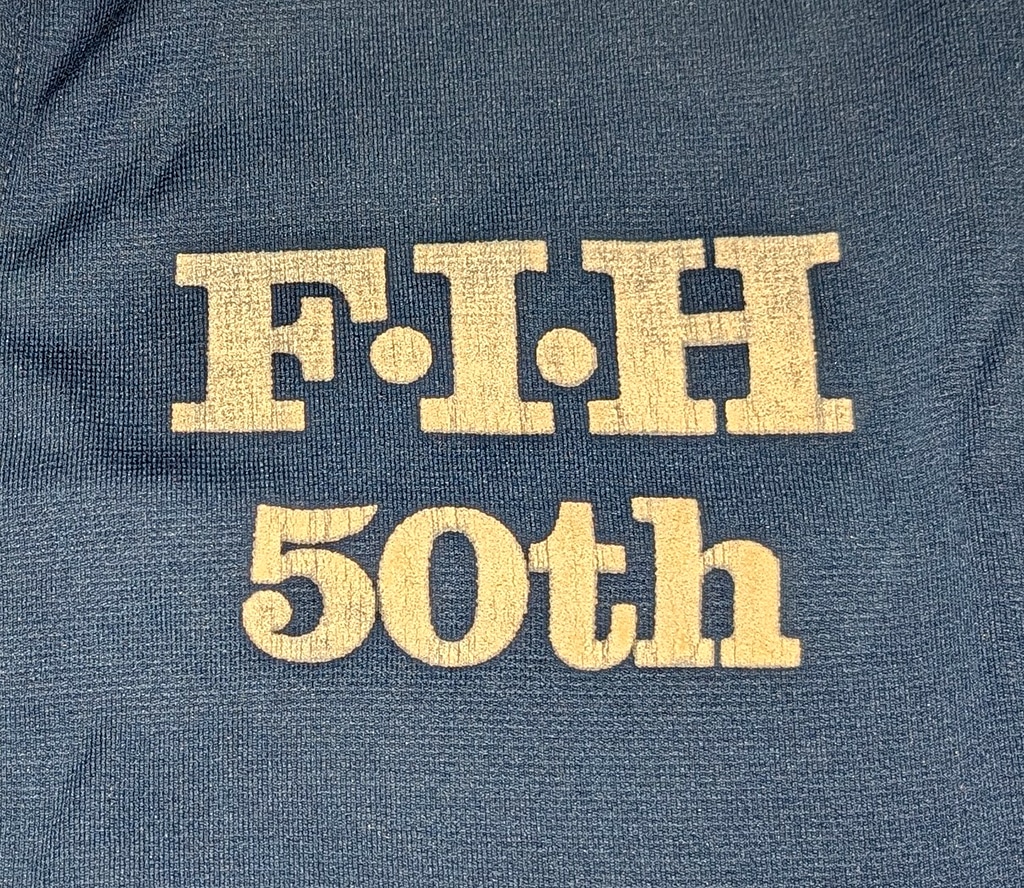The Hockey Museum recently received a 42-year-old document that has a particular resonance with contemporary events that are consuming the world’s media today.
The document in question is a copy of Prime Minister Margaret Thatcher’s letter of 19 February 1980 to Sir Denis Follows, CBE, Chairman of the British Olympic Association. The letter on 10 Downing Street headed notepaper was a response to the British Olympic Association’s wish that the Moscow Olympic Games be moved away from Russia because of the Soviet Union’s invasion of Afghanistan in December 1978. Prime Minister Thatcher’s response was to advise British athletes to boycott the Moscow Olympic Games. She requested that the British Olympic Association should “accept the advice of the Government in this matter and reflect it in [their] response to the invitation of the Moscow Organising Committee to take part in the Games in Moscow”.1
The Prime Minister (PM), in tones that are eerily familiar today, observed that the “Soviet invasion of Afghanistan on a flimsy pretext and its continued military occupation of a sovereign country violates all the principles governing relations between states and peoples”. This commentary could apply equally to the situation in Ukraine today. The PM later stated that “for British athletes to take part in games this summer would be for them to seem to condone an international crime”.2
 |
|
Extract of the letter from Prime Minister Margaret Thatcher on 10 Downing Street headed paper. Correspondence from The Hockey Museum’s archives. |
The Thatcher Government embarked on a press campaign to support the boycott of the 22nd Olympiad. Bernard Levin in The Times commented that “our athletes might win medals in Moscow, but they would be tarnished badges of shame”. Subsequently the Government prohibited civil servants and serving members of the military to take leave to attend the Olympic Games.3 There are parallels in the Western nations’ boycott of the Moscow Games in 1980 and today’s economic sanctions being levied on Russian businesses and individuals linked to Vladimir Putin’s regime. Similar pressures have been applied by governments to Western businesses to boycott Russia now, as were applied to the British Hockey Boards 42 years ago.
This governmental pressure led to the Great Britain Hockey Board (men) and the Women’s Hockey Board of Great Britain and Ireland voting to withdraw from the Moscow Games on 22 March 1980. Both groups had met independently prior. Roger Self, Manager of Great Britain (GB) men, spoke to the Hockey Association (England) meeting the previous day and confirmed that the “entire [men’s] squad under present political circumstances prevailing wanted to go to Moscow”. The players saw the decision to be a “political one and not in the interests of the game”.4 This stance pitted the men’s players against their governing body which voted 25-6 to boycott the games despite the players’ strong desire to participate.
Despite trenchant opposition, the boycott went ahead and hockey, along with yachting and the equestrian team, were the only British sports wholly absent from Moscow – other sports sent depleted teams.
The British men had missed out on qualification for the Montreal Games in 1976, so the Moscow boycott meant a whole generation missed the opportunity to play Olympic hockey. The Soviet Union’s aggression also deprived the GB women of the prestige of taking part in the inaugural women’s Olympic hockey tournament. Despite men’s hockey having been an Olympic sport almost without exception since 1908, women’s Olympic hockey had been forced to wait 72 years for admittance and, like the men, many elite players lost the chance to compete at an Olympic Games.
The Olympic Hockey Tournaments, Moscow 1980
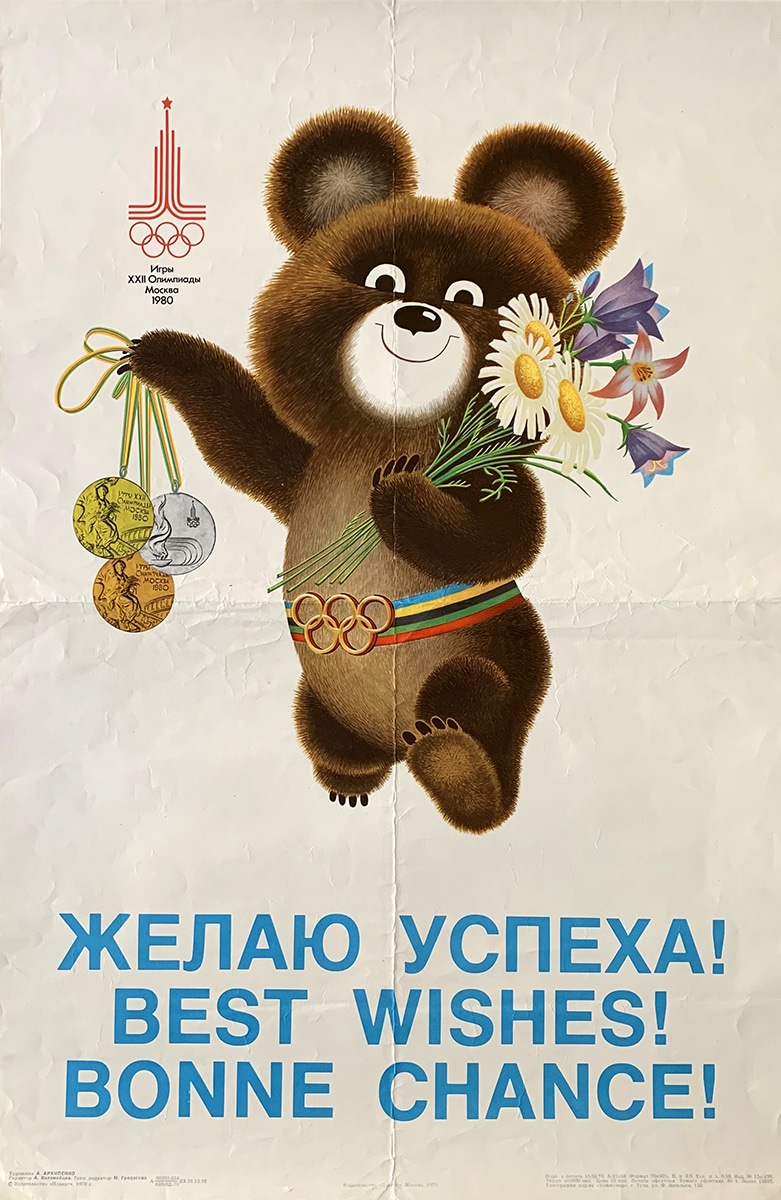 |
|
Official poster from the Moscow Olympic Games of 1980, featuring Games mascot Misha. Poster from The Hockey Museum’s collection. |
The inaugural women’s Olympic hockey tournament was subsequently a depleted affair with most of the Western nations boycotting alongside Great Britain. It was played on a round-robin basis and in a spectacular result was won by Zimbabwe. Czechoslovakia and Soviet Union took the silver and bronze medals respectively. The sole group for the women’s tournament also included India, Austria and Poland.
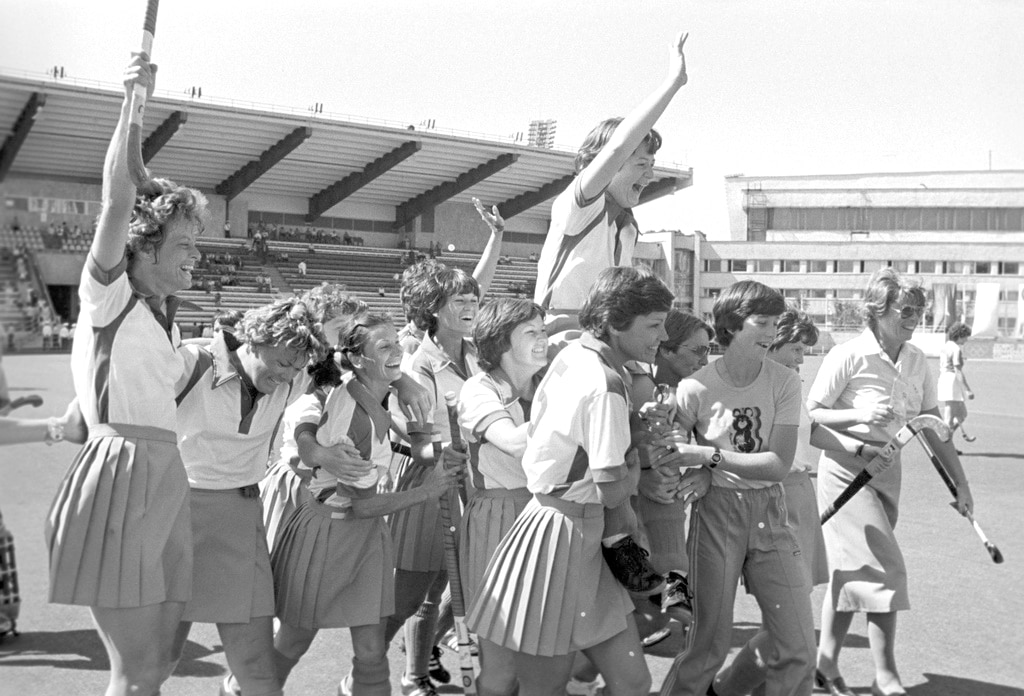 |
|
Zimbabwe women’s hockey team celebrate their unexpected gold medal at the Moscow Olympic Games, 1980. © Wikipedia RIA Novosti. Zimbabwe’s first Olympic gold and the forgotten hockey fairytale of 1980 | insidethegames.biz |
The original format of the women’s tournament (as would have been before teams boycotted) is not known, but initially GB men were selected in Group A along with Argentina, India, Kenya, Netherlands and Pakistan. After multiple countries pulled out, the men’s tournament comprised of six nations – Spain, India, Soviet Union, Poland, Cuba and Tanzania. Spain topped the round-robin tournament only to lose 4-3 to India in the Gold Medal match. Spain’s Juan Amat, competing in his fourth Olympic Games and the tournament’s top scorer with 16 goals (8 goals in an 11-0 demolition of Cuba), scored a hattrick in a losing effort.
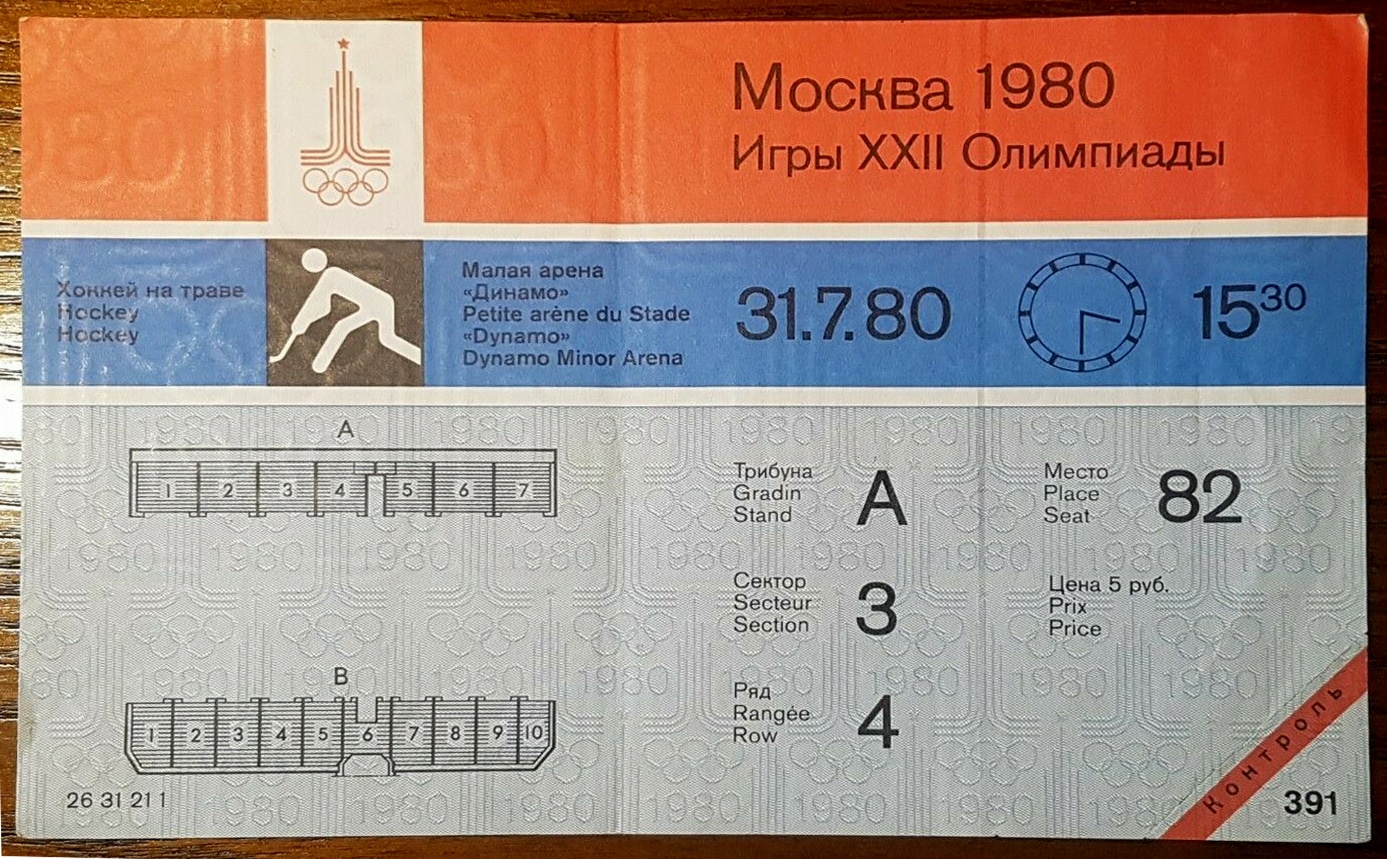 |
| Ticket to the Olympic hockey tournament at the Dynamo Minor Arena, Moscow, 1980. |
Despite the heroics of the competing nations, in Britain the Olympic hockey tournaments in Moscow will for ever be remembered for who was not there, and why.
Whilst the public support for a sporting boycott of Russia because of the Ukraine crisis remains strong and more importantly, both appropriate and proportionate, the hockey boycott of the Moscow Olympic Games by the GB women and men’s teams remains a painful and, for many, a contentious issue 42 years on.
Ian G Jenkins, March 2022
NB. The research undertaken by Ian for this article unearthed considerable further material. Subsequently, Ian recognises the need for a more detailed study, including a thorough exploration of The Hockey Museum archives but also interviews with those involved or impacted by the Moscow 1980 Olympic boycott. If you have information or consider yourself a potential person of interest to Ian’s ongoing research, please contact The Hockey Museum: Contact Us (hockeymuseum.net)
Footnotes
- Letter from Margaret Thatcher to Dennis Follows, 19 February 1980 (The Hockey Museum Archives).
- Ibid.
- Riordan, J. Great Britain and the 1980 Olympics. Sports Relations and International Understanding (1982) pp 144-158 Vol 5 No 2.
- Hockey Digest, Summer 1980. pp 5-7.
Oral Histories Referencing The Boycott Of The Moscow 1980 Olympic Games
The following oral history interviews available on The Hockey Museum website offer insight into the personal experiences of players, coaches and umpires in relation to the 1980 Olympic hockey boycott. You can search “Moscow” within each oral history and jump to the relevant point in each interview. Alternatively, listen to them in their entirety.
- Anne Ellis (GB women’s Captain) – Anne Ellis oral history | The Hockey Museum
- Bernie Cotton (GB men’s Captain) – Bernie Cotton oral history | The Hockey Museum
- Chris Todd (FIH Umpire) – Chris Todd oral history | The Hockey Museum
- Maggie Souyave (GB women’s player) – Maggie Souyave oral history | The Hockey Museum
- Richard Dodds (GB men’s player) – Richard Dodds oral history | The Hockey Museum
- Roger Self (GB men’s Manger) – Roger Self oral history | The Hockey Museum

